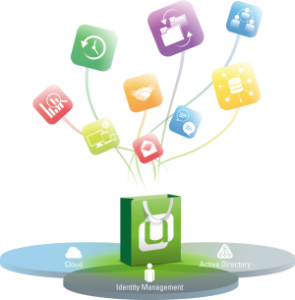 The first preview of our upcoming UCS 4.0 release is available. On this occasion I would like to give you an overview of the major technical changes in this preview release.
The first preview of our upcoming UCS 4.0 release is available. On this occasion I would like to give you an overview of the major technical changes in this preview release.
16.500 new source packages
With UCS 4.0 the underlying Debian distribution is updated to Debian 7 Wheezy. That means all of the 16.500 source packages have been updated and adapted to UCS needs. A major part of the UCS packages is written in Python. We switched from Python 2.6 to Python 2.7 for these packages. To allow an easy migration from UCS 3 to UCS 4, we decided to build the modules still for both Python versions.
One major new feature in Debian 7 is multiarch. Multiarch lets you install packages from multiple architectures on the same machine. This is useful in various ways. The most common is installing both 64 and 32-bit software on the same machine and having dependencies correctly resolved automatically. The Debian wiki has an extensive manual on how to make use of this functionality if you need it.
UCS installation
The UCS 4 installer is based on the Debian Installer and replaced the previous own implementation. The installer asks only for the important basic settings such as language, network and partitioning. Thereby a graphical RAID configuration is possible during the installation. The UCS-specific installation steps are done in a web-based setup assistant. Thus, a UCS system can be configured either by a locally installed web browser or via remote which makes cloud setups really easy. The setup assistant is already used in the UCS 3 appliance.
Hardware support
We decided to update the Linux kernel to 3.16. This will also be the default kernel for the next upcoming Debian stable release aka Jessie. The kernel development has an amazing speed and we are very happy that we rarely find unsupported server hardware.
Active Directory
One major part of UCS is the possibility to act as Active Directory domain controller which, for example allows the Microsoft Windows client management via group policies. This function is based on Samba. The Samba team is currently working on Samba 4.2. We integrated a previous snapshot of Samba 4.2. That allows our partners and customers to get a feeling for this new version.
OpenLDAP performance
At the beginning OpenLDAP is a main component of UCS. Currently, we are using Oracle BerkleyDB (BDB) as database backend. We’ve made a lot of performance and comparative tests with different OpenLDAP backends. The results for the memory-mappend database (MDB) were incredible. So, we decided to switch the database backend to the mdb backend.
We are very grateful for any kind of feedback, either here or in our forum.
